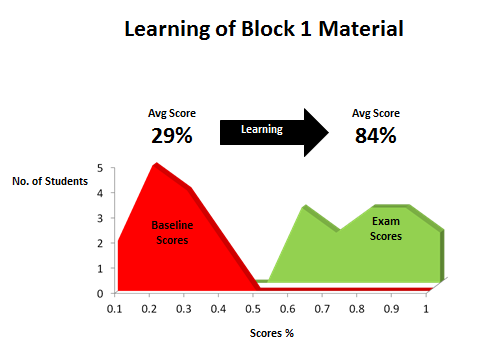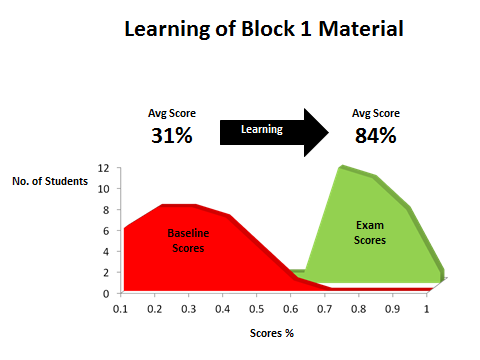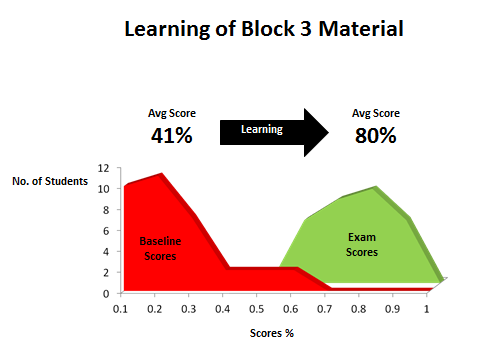Appreciating the power of education and knowledge can be tricky. We so quickly acclimate to our own situations. As the weeks go by, it is hard to remember how much we used to know and how far we have come.
The best way to appreciate the power of knowledge is to measure your learning — or your students’ learning — before and after the learning experience. In science terms, this is known as a pre-post design.
We are not talking about drug trials though. And these are not carefully controlled experiments requiring millions of dollars in federal funds. This is the simple power of going to lectures from an expert, reading the relevant texts and participating in classroom exercises.
The results are shocking, and more so when you consider that the methods of learning are available to all of us.
The charts below display student performance data from University level courses. Students were evaluated at the beginning of the semester (red distributions “Baseline Scores”), where any knowledge would have come from independent study or prior experience.
Students’ exam scores were then collected from the relevant exams throughout the semester (green distributions “Exam Scores”). Blocks 1 through 3 refer to blocks of coursework representing about 3 to 4 weeks of full-time study.
I have shown two different sections of the course side by side. You can appreciate that while every class of students has their own unique characteristics, the power of learning strongly generalizes across learning experiences.
These are traditional multiple choice exams, so we expect that even a naive machine could randomly guess the correct answer about 25% of the time. Scores of 25% correct are essentially what you see for baseline scores — about as good as random chance.
But holy smokes! Look at those green distributions. Those represent exam scores after the course material had been purposely learned. Even the lowest performing students tended to out-perform the uninitiated.
Every now and then, you find the special student with prior experience or great guessing abilities. But you never find a perfect 100% score without purposeful study.
Most importantly, you can move entire groups of students reliably toward higher knowledge using the principles of learning. Whether you are a great guesser or not, have prior experience or not, have great ability or not, everyone benefits from learning.
Powerful.
Thanks for reading!






